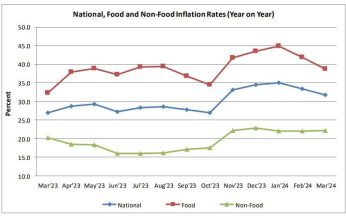Ministry partially lifts maize export ban
Ministry of Trade has partially lifted the maize export ban to mop up last year’s maize stocks to create space for the anticipated more than one million metric tonnes (MT) surplus grain.
In a statement yesterday, the ministry’s Principal Secretary Christina Zakeyo advised interested exporters to apply for export licences to enable them export the staple grain.

She said: “The ministry wishes to stress that the maize export licences will only be issued to exporters with proof of verifiable maize stocks from the previous agricultural season.
“The licences to be granted will have a validity period of three months from the date of issue.”
The Malawi government imposed an uninterrupted maize export ban from 2011/13 until the end of 2017. In early February 2018, government reintroduced the ban to preserve the national grain reserve and stem the impact of tighter domestic supplies.
Since last year, Grain Traders and Processors Association of Malawi has been calling for a lift on the ban due to huge maize stocks, which the local market cannot consume.
The association’s chairperson Grace Mijiga-Mhango in an interview yesterday commended government for lifting the ban, saying the stocks would have gone bad.
She said: “We are excited with the news because we recently officially requested the government to allow us to export the maize.
“Cumulatively, our membership has over 29 000 metric tonnes, which is verified stock but other traders would also have stock for exports.”
Minister of Trade Sosten Gwengwe earlier said government will allow maize exports using export mandates, a situation where no commodity is exported unless it goes through a structured market.
Currently, export mandates apply for tea and tobacco.
The minister said by using export mandates, government wants to ensure that foreign exchange is repatriated back to Malawi.
Agriculture development policy expert Tamani Nkhono Mvula cautioned government to manage the exports well to avoid creating maize shortage in future.
He said government should not bank on the first-round crop estimate, which shows the country will have one million MT of maize surplus.
“My view is that it is not a total lifting of the ban, but people should apply for export licences, which is a better move than opening up free-for-all to export,” he said.
Over the years, rice and maize have had export restrictions to ensure food security.
Maize remains the key staple crop in the country; hence, listed among protected crops.





